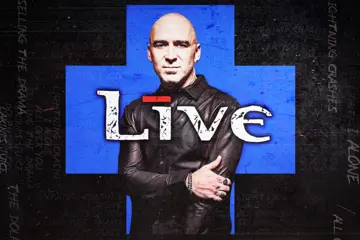suppose we do run the risk of being token aboriginals on stage,” Daniel Riley McKinley admits. The politics of dancing is never far from the surface for the nation's highest profile Indigenous arts brand, Bangarra Dance Theatre. For quarter of a century they have brought tribal tradition to the contemporary stage. They have toured internationally, been raved about in the media and set themselves up in a central Sydney studio, all of which seems quite removed from the stories and songlines of Australia's disparate and often dispossessed aboriginal communities. As co-choreographer of Bangarra's newest work, Blak, McKinley is quite open about the apparent disconnect. “Y'know, we perform at a theatre, where people pay to come and see it. So y'know, you could look at it like there is this borderline tokenism but the way Bangarra does it, it's on a whole other level.” Under the 20-year directorship of Stephen Page, Bangarra has worked hard to maintain heart. According to Riley McKinley, “The lucky thing about Bangarra is that Stephen has had this long-term relationship with families in Arnhem Land and other communities and they're so open to the idea of him sharing their stories and traditions and songs and melding that into a contemporary setting.” However, the desire to remain genuine cuts deeper than simply crafting authentically Indigenous dance works. For the Bangarra team, the connection is personal and pivotal. “That spiritual link is really important for us, especially because we live in Sydney. Our stories are so based in culture but it's hard to stay connected to that everyday living in a city like Sydney.” The disconnect motif is at least partly explored in Blak, a three-part work co-created by Page and Riley McKinley. In the latter's piece, Scar, the focus is on the journey from boyhood to manhood and the lack of initiation and ceremony in contemporary culture. Inspired by the scars on a friend's chest, Daniel Riley McKinley began an investigation into the idea of becoming a man. “And that got me thinking, 'well, what is it for us?' We live in an urban setting and we don't have ceremonies, we don't have a moment or this rite of passage that we undergo and walk away as men.”
After a series of 'deep and meaningfuls' with Bangarra's male dancers, Riley McKinley observed recurring themes and began to mould them into Scar. “It's sad because a lot of young boys don't have someone to teach them the responsibilities, to show them what it takes to care for family and become self-sufficient. But also, I got to questioning my own status. Y'know, how do I know when I'm a man?”
Elsewhere, Blak explores women's business. Stephen Page's piece, Yearning, looks at both the loss of language and spectre of abuse. The third piece, a Page/Riley McKinley collaboration called Keepers, deals with the place of traditional culture in the fast-moving contemporary world. Featuring music by renowned electronic artist Paul Mac, Blak does what Bangarra does best; namely, span both temporal and cultural chasms to create work that is both avowedly Indigenous and undeniably modern.
“People come to Bangarra because of that yearning for culture,” Daniel Riley McKinley concludes. “Maybe it's for their own culture but it's still that yearning for connection.”
Don't miss a beat with our FREE daily newsletter















